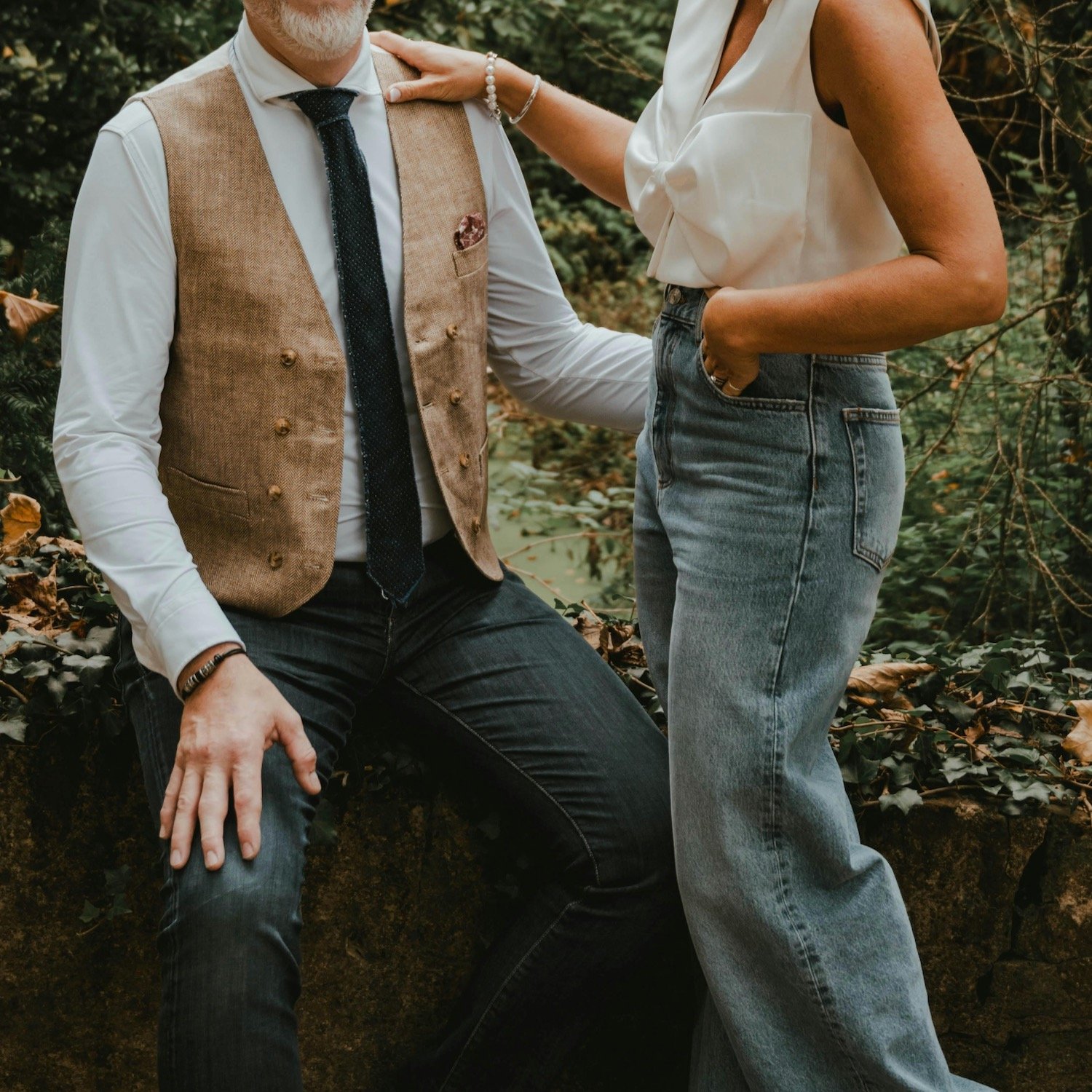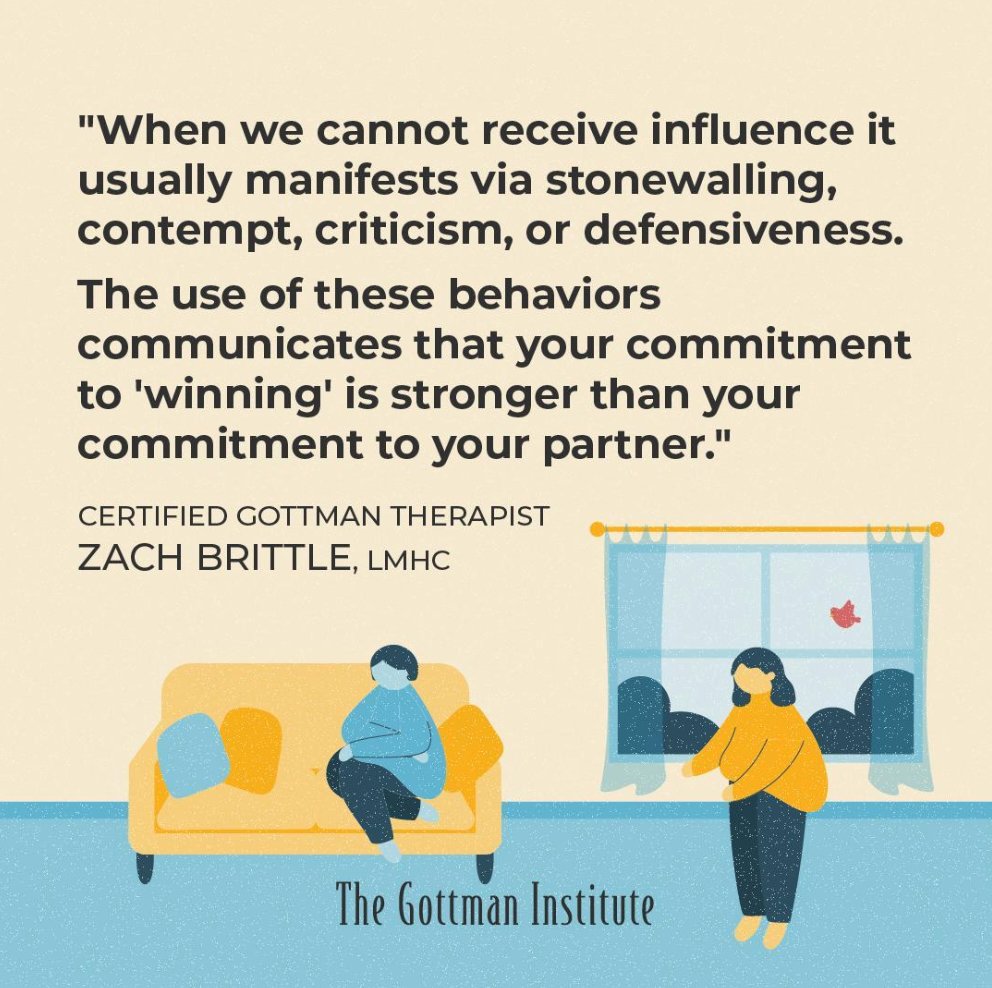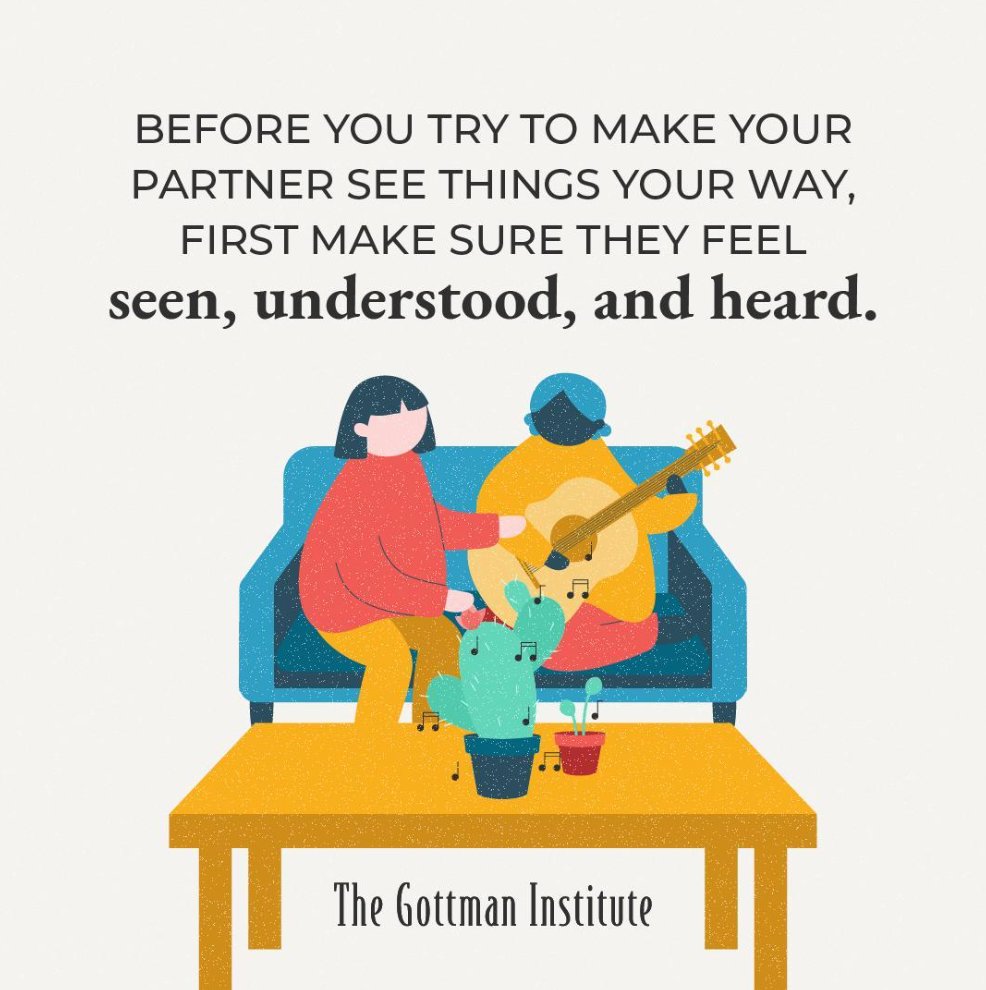This One, Simple Thing Will Make Your Partner (And You) Feel Instantly Validated
by Marissa Pomerance
We all know that one of the secrets to a healthy relationship is making our partner feel validated—aka, heard, understood, and supported.
And according to The Gottman Institute, our go-to resource for smart, doable relationship advice, there’s a secret trick that makes our partners feel incredibly validated AND benefits us in return.
It’s called “accepting influence.”
“Accepting influence means being open to the ideas and opinions of your partner,” says certified Gottman therapist, Sinead Smyth. “By accepting influence, you acknowledge (verbally or nonverbally) that your partner has a valid point of view, you welcome it and are willing to be influenced and maybe have your perspective changed a bit.”
Not only does it make us better partners, but it also makes us more “influential” to them.
Here’s why it’s so powerful.
1. It shows them we care about their needs.
We all love being right. We love getting our way. We don’t love being challenged, or admitting we were wrong, or doing things differently. Especially when doing things differently means letting go of control when the husband cooks even though he isn’t salting the pasta water and doesn’t he know that’s an idiotic way to chop an onion and maybe I should just take over so I don’t have to watch him screw up a good Bolognese.
But.
While it’s obvious that compromise is a key component of a healthy relationship, what’s less obvious is knowing how to compromise without demonstrating our resentment, reluctance, or frustration. Accepting influence is a way to show our partners that we’re not just paying them lip service to avoid a fight, but that we’re actually attuned to their needs.
“If I dismiss my partner’s concerns out of hand and reject their influence, that tells them I believe my opinion is the only one that matters,” says Smyth. “If on the other hand, I accept influence from my partner, that says, ‘you are important, and your opinions matter to me.’ Partners who experience being influential with each other tend to feel understood, cared for and validated.”
Here’s a small example of one way a partner can accept influence, from Smyth:
Luis wanted Italian for dinner, Chloe wanted Thai. Luis was in a good mood, knew Chloe had a bad day at work, so he decided to not make an issue of it. They had Thai. Chloe felt supported and cared for. It was a deposit into the emotional bank account.
That doesn’t mean we always have to do what our partners want to do, or constantly compromise, or just say we agree with them (when really, we don’t). Instead, “accepting influence is a genuine curiosity to the perspective of your partner. It is not about rolling over and forgetting that you also have a perspective on the issue under discussion. You may agree or disagree with your partner, but you are trying to stay open to them, to how they think and feel on the issue,” explains Smyth.
2. It can help us shed unproductive coping mechanisms.
If we’ve been…reluctant to accept influence in the past or struggle with needing to be right all the time, it’s possible that as children, we adopted survival styles that are no longer serving our adult relationships.
According to Smyth, “problems with influence tend to be a product of how we were raised. Maybe we were criticized a lot growing up and developed an identity that was based on not being worthy unless we were perfect, and mistakes weren’t allowed.”
In that case, learning to accept influence might be an ongoing skill to cultivate, not a switch we can flip overnight. But once we embrace it, it can open up a lot of doors—not just to our partners, but to better versions of ourselves. “Maybe you see your partner being more open to you. You may experience some relief from not having to be right all the time. And maybe you keep in mind the old saying, ‘Do you want to be right, or do you want to be married,’” says Smyth.
3. They’ll be more willing to accept your influence.
Ah yes. Here’s the one we’ve all been waiting for. “What do I get in return?”
No judgement—relationships are two-way streets, and if we’re suddenly going to be “open” and “flexible,” it would feel a littttllee unfair if our partners remained rigid and unchanging, right?
But it turns out that accepting influence creates positive cycles in our relationships that don’t just make our partner feel validated, but also makes them more willing to accept our influence.
When we’re inflexible, consistently shut down our partners, refuse to compromise, or cling to being “right,” then our partners may do the same to us out of resentment or revenge. But, “if there is a pattern of respectful influence going back and forth, that will feel fair to both partners. In relationships that feel fair, people are more likely to feel respected and that softens each partner up to the opinions of other,” says Smyth.
Here's an example from Smyth of two partners both allowing themselves to be influenced:
“Layla wants to stop wearing masks on their nightly walk in the neighborhood with their dog, since her and Sara are fully vaccinated. But Sara still has anxiety about COVID. In conversation, they didn’t argue for their positions, but were gentle in trying to understand and communicate their understanding of Layla’s frustration and Sara’s anxiety. This was the key to them being able to come up with a compromise where Layla would sometimes walk the dog by herself maskless, but when she was with Sara, wore a mask. They both got something they wanted, and were willing to accept each others’ influence.”
When we start to accept influence from our partners, they’ll feel the relationship is more balanced and equitable, and that will make them feel more open (less resentful and vengeful), and they’ll mirror that behavior back to us.
4. Even if there’s no “compromise,” it can create more positive conflicts.
Remember—accepting influence isn’t about agreeing to whatever our partners want. It’s not about changing into a different person. Sometimes, it’s as simple as just validating their feelings and perspective, which can reduce conflict.
And according to John Gottman, taking these potentially negative, conflict-inducing issues, and changing them into moments of validation can foster the kind of positivity that feeds happy relationships. “Partners who handle conflict well tend to have a lot of positivity between them – even in conflict,” Smyth explains. “There’s even a magic ratio for this. One such ‘positive’ is accepting influence. One partner listening, nodding at their partner’s concerns, maybe saying ‘ok, I think I understand what you mean,’ is a positive – a small way of saying ‘yes’ to their partner. It keeps the conversation going and can avoid power struggling and gridlocking on issues.”
According to Smyth, here’s an example of how accepting influence can be powerful in conflict, even when there isn’t a “solution”:
Angela and Ted have big money issues. With her tax refund, she was desperate to save the money, but he really needed a vacation. By being able to hear each other’s underlying hopes and worries (hers – no savings vs. his-complete work burnout) without defensiveness and shutting each other down, they felt like they’d made huge progress on an ongoing issue they have, even though no problem was solved. Accepting influence by acknowledging each other’s valid concerns made them feel closer to each other.
Image from Instagram/ @GottmanInstitute
5. Here are 3 ways to start accepting influence.
So now we know that being stubborn and inflexible isn’t serving our relationships (who knew?), and demonstrating our capacity for growth and change is the magic secret to a happy life. Great!
But if we’re not naturally…adaptable, or struggle with defensiveness, knowing how to get started is sort of THE challenge.
Luckily, Smyth put together 3 handy, actionable ideas for how to start implementing this idea in our relationships today. Ready? Let’s go:
“Check yourself: Self-awareness is key. Many of us are not trying to shut our partner down but are inadvertently doing so. Sometimes we say things like, ‘I’m just expressing my opinion,’ when in reality we’re thinking, ‘this is the only opinion that matters.’ Try to become aware of yourself when you do this-- are you really staying open to the other perspective?”
“Listen with curiosity to their point of view: Check to see if you are understanding correctly. It is so much harder to do this when you disagree, but any solution you can ultimately come to is going to feel a lot better if both of you feel understood and respected.”
“Find a small way to say ‘yes’ in a situation where you’d normally say ‘no’: Buy the 2% milk your partner likes, just because they prefer it. Or agree to get takeout from their favorite restaurant, even if it’s not your first choice that night.”
We like the last one— start with something small, and see how great it makes your partner feel. With time, we may even realize that our partners’ ideas and opinions…aren’t wrong. What a revelation.
Marissa Pomerance is the Managing Editor of The Candidly. She’s a Los Angeles native and lover of all things food, style, beauty, and wellness. You can find more of her articles here.










